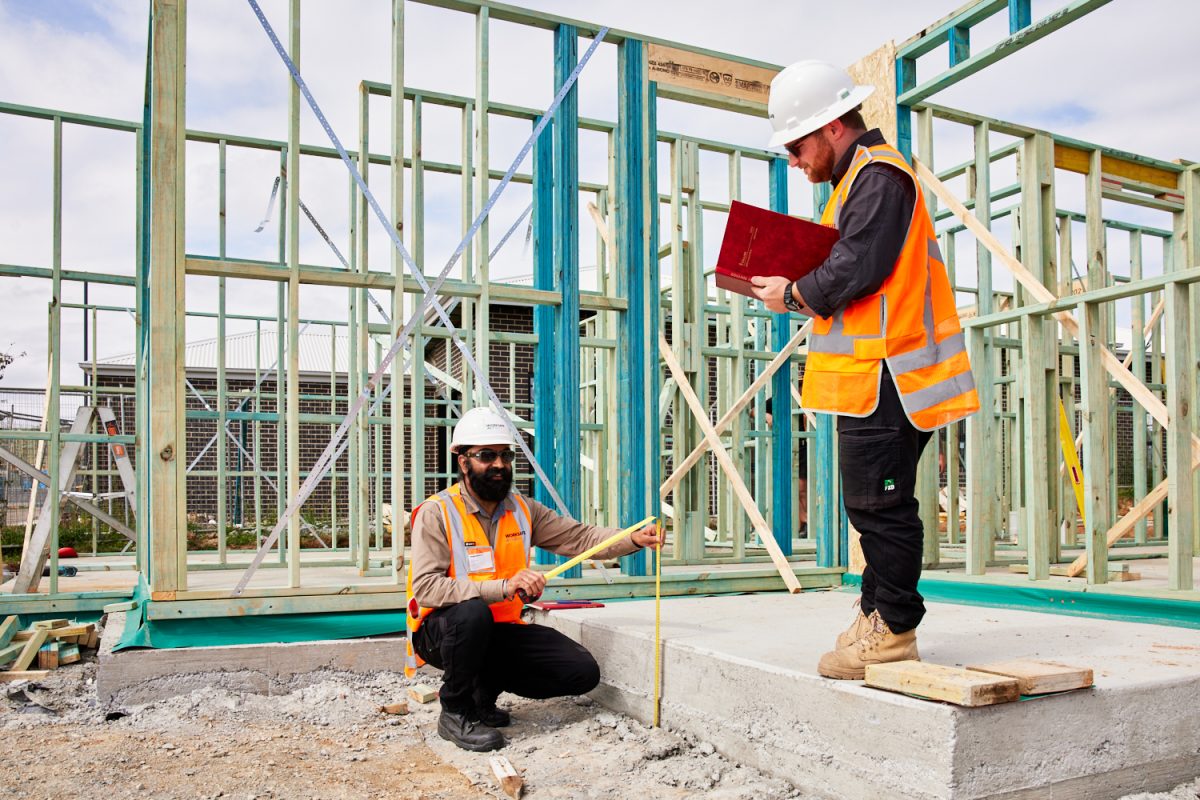
Building companies are being told to lift their game to make ACT work sites safer. Photo: WorkSafe ACT.
Canberra tradies are being encouraged to dob in dodgy worksites or risk serious injury.
Contractors and short-term employees remain reluctant to report accidents and unsafe work practices on job sites, despite the residential construction industry having the highest number of workers’ compensation claims for the past five years compared to other ACT sectors.
Maliganis Edwards Johnson (MEJ) partner and workplace injury compensation lawyer, Kirsten Leitch says WorkSafe ACT’s recently launched Residential Construction Strategy for 2022-24 will go a long way towards stamping out the “she’ll be right” attitude long held by some building companies and their employees.
Ms Leitch says while construction sites can be dangerous workplaces, accidents can be prevented if risks are reported and proper Work, Health and Safety (WHS) procedures are followed.
But she says speaking up about safety concerns hasn’t been commonplace on building or construction sites in the past.
“Traditionally this isn’t an industry where ‘dobbing’ is encouraged, because often workers are subcontractors or short-term employees and there’s the fear they might not get the next job with the company,” Ms Leitch says.
“There needs to be a change in attitude towards safety on job sites, from the very top, right down to the tradies doing the physical work.”
According to WorkSafe ACT, common WHS offences have not significantly changed over the past two years. Breaches common across the ACT include failing to manage the risks of falls from heights, securing the workplace, and inadequate scaffolding.
READ ALSO: WorkSafe boss wants more penalties, prosecution options for construction repeat offenders
Ms Leitch says the laid back attitude often extends to reporting workplace incidents or injuries.
“Nine times out of 10, people will report an injury to their employer, but often only verbally,” she says.
“On residential construction sites, it’s not uncommon that a notification form is not filled out.
“Employees and contractors need to insist the paperwork is completed, regardless of the severity of the injury.”
All employers are obliged to give injured workers a claim form and provide the details of their insurer.
Failure to fill out the required documentation and to report an injury – no matter how minor it may seem at the time – can impact claims for compensation, including claims made years down the track.

MEJ partner and compensation lawyer Kirsten Leitch says keeping records of all incidents can reduce complications with claims down the track. Photo: MEJ Lawyers.
Ms Leitch says tradies, and employees in other physical roles such as nursing, often make their own assessments of pain and accept “it’s just part of the job”.
“A lot of labourers don’t tell their employer about things such as back pain or sore knees because they think it’s normal and goes hand-in-hand with heavy lifting or being on their feet all day, every day,” she says.
“They tend to just hang in there and the injuries build up over time.
“Anyone experiencing pain at work needs to see a doctor and fill in the paperwork as soon as possible because it’s really important for protecting their rights down the track if they require compensation.
“Even if they think it’s something relatively minor, their employer’s insurer needs to know about it as well.”
People injured at work can still make claims for compensation, even if the incident isn’t reported at the time. But having supporting documents makes a compensation lawyer’s job much easier.
READ ALSO: Kirsten Leitch is breaking the mould in workplace injury law
Ms Leitch says the MEJ team has worked with clients who have all the documentation required, and others with no records of injuries that occurred years ago.
“Just because someone hasn’t reported an incident, doesn’t mean they’re not entitled to claim compensation,” she says.
“But, the longer they wait to seek legal advice, the less likely they are to get assistance from their employers and the insurer.”
Ms Leitch says employees can prevent potential injuries by reporting risks to their employers or Worksafe ACT. And if they’re injured at work, they mustn’t ignore it.
WorkSafe ACT WHS Commissioner Jacqueline Agius says workplace injury, illness and disease are avoidable.
“We all have one thing in common, that is everyone wants every worker and every workplace to be healthy and safe,” she says.
Claims involving accidents on construction sites are complex and require expert and specialist advice. For more information contact Maliganis Edwards Johnson
Original Article published by Katrina Condie on Riotact.


What's Your Opinion?